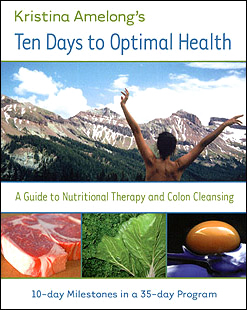Keto Diet vs. Ten Days to Optimal Health Diet
Introduction to Keto Diet
What Is Ketosis?
Keto Diet Benefits
Keto Diet Side Effects and Health Risks
Keto Diet vs. Ten-Day Diet
Keto Diet Basics
The ketogenic or keto diet is an eating program very low in carbohydrates, high in fats, and modest (adequate) in proteins. It was originally developed to assist in decreasing the frequency of seizures in epileptic patients, primarily children, but since the 1990s has more broadly grown in popularity as a means to lose or maintain weight.
While this diet does often help people lose weight in the short term, many doctors do not recommend the keto diet for just anyone, and it's controversial for multiple reasons: potential side effects, health risks if used over the long term, and the fact that most people tend to gain the lost weight back once they transition away from the diet.
The basic guidelines of the keto diet are simple: 70-80% of your total daily calorie intake should come from fat, 10-20% from protein, and 10% or less from carbohydrates.

What Is Ketosis?
The goal of the keto diet is to get the body into a state of ketosis. Ketosis is the metabolic state in which your body is burning stored fat instead of sugar (carbohydrates) for energy, and which occurs only if you drastically reduce the amount of carbohydrates you're consuming and instead primarily consume fats.
The amount of protein consumed on the ketogenic diet is kept moderate in comparison with other low-carb, high-protein diets because the amino acids in protein can be converted to glucose in the body, so eating too much protein can prevent ketosis.
Because the ketogenic diet is so restrictive in what foods you can eat, most health experts agree that it's not a good diet to be on in the long term. Along with the likelihood that you will gain back the lost weight once you reintroduce carbs to your diet comes the risk that this type of diet and significant weight fluctuations can contribute to eating disorders.
Benefits of the Keto Diet
There are certainly short-term benefits to the keto diet that many people observe, primarily weight loss for those who have that goal, improved insulin resistance, and lower blood pressure and cholesterol.
However, if you are primarily consuming foods that are high in saturated fat on this diet, it can have adverse effects on blood LDL cholesterol (sometimes known as "bad" cholesterol). It is best to try to also eat a good amount of foods that are lower in saturated fat, such as fatty (oily) fish like salmon and tuna, olive oil, avocado, nuts, and seeds.

Short-Term Side Effects of the Keto Diet
It is common to experience side effects or feel quite ill when starting the keto diet, as your body first experiences ketosis. Some people informally call this the "keto flu". Common symptoms include GI distress, constipation, headache, fatigue, brain fog, irritability, nausea, and difficulty sleeping. Symptoms usually subside after about a week, and can be eased by drinking a lot of water and sleeping as much as you can.
Making a sudden dietary change from the average American diet to the keto diet can cause significant changes in your gut microbiome and can also trigger a detox response in the body (characterized by the "keto flu" symptoms above). Doing my recommended enema series protocol can help alleviate many of these symptoms by supporting your body to detoxify at the start of the keto diet and helping relieve constipation or GI distress.
▶︎ Home Enema Series: Step-by-Step Instructions
Possible Long-Term Health Risks of the Keto Diet
- Ketoacidosis — If you have type 1 or type 2 diabetes, you should not follow the keto diet unless you have the permission and close supervision of a physician. For those with diabetes, ketosis can trigger a dangerous condition called ketoacidosis, in which excessive ketone bodies produce a toxic level of acid in the blood. This can damage the liver, kidneys, and brain, and if left untreated, can be fatal. (Ketone bodies are produced by the liver and used peripherally as an energy source when glucose is not readily available.)
- Reduced athletic performance — The body is in a more acidic state when it's in ketosis, which can impact your energy levels and affect athletic performance. Additionally, not consuming enough protein can negatively impact athletic performance and energy levels.
- GI issues — Some people do not consume enough fiber when on the keto diet. This, in addition to an abrupt overall change in diet, can cause GI issues such as diarrhea and/or constipation.
- Decreased muscle mass and metabolism — Eating significantly more fat than protein can also result in decreased muscle mass and metabolism changes. When a person goes off the keto diet and regains weight, as is common, it's likely that much of what is regained will be fat, rather than muscle, which can have long-term effects on one's health and weight.
- Increased risk of heart disease — Ideally the keto diet should include plenty of vegetables and protein, and limit foods that are high in saturated fat. However, many sources of information on the keto diet encourage consuming high amounts of saturated fats, and for some, this can lead to significantly elevated levels of LDL ("bad") cholesterol that can be very harmful to heart health.
- Increased risk of diabetes — Studies have also shown that the keto diet can increase the risk of diabetes.
- Risk of kidney stones and osteoporosis
- Nutrient deficiencies — The parameters of the keto diet are vague, and primarily focus on the types of foods to eat or not to eat (fats, carbs, protein) rather than specifics. Because of this, it's possible for those on the keto diet to miss out on important foods and suffer from nutrient deficiencies. Make sure you focus not just on high-fat foods. It's best to eat a variety of the allowed meats, fish, vegetables, nuts, seeds, and healthy fats to ensure adequate intake of fiber, vitamins, and minerals.
The Ten-Day Diet (see below) may be better suited to many people than the keto diet because there is more flexibility in what you can eat, and less likelihood that important food groups will be left out. Consulting with a nutritionist (I offer personal health consultations) or doctor may also be a good idea to avoid nutrient deficiencies when following a ketogenic diet.

Keto Diet vs. Ten Days to Optimal Health Diet
As mentioned above, the keto diet heavily focuses on eating fats, both high and low in saturation, with small amounts of carbohydrates and moderate amounts of protein. The best ratios and types of food vary depending on your own body and health. It's easy to blindly follow these vague guidelines and end up negatively impacting your health in the long term.
The Ten-Day Diet has a lot in common with the keto diet, but differs in a few key ways:
- Like the keto diet, the Ten-Day Diet advises a low carbohydrate intake, and specifically avoiding gluten, sugar, and alcohol. However, the Ten-Day Diet recommends that proteins, healthy fats, and vegetables make up the majority of your diet, with less extreme fat-to-protein and fat-to-vegetables ratios. I recommend eating 5 to 25 grams of protein every 3 to 4 hours. Making sure you're eating enough vegetables and protein can reduce the risk of having nutrient deficiencies or losing muscle mass.
- Raw dairy products are good for the gut microbiome, and are recommended on the Ten-Day Diet if you have access to them.
- There is a focus on other foods that are rich in probiotics as well, such as kefir, kombucha, sauerkraut, and kimchi.
▶︎ Learn More about the Ten-Day Diet
▶︎ Meal Suggestions
▶︎ NEW! Consider a Carbohydrate Reset
▶︎ Schedule Phone Consultation with Kristina Amelong, CCT, CNC
The Keto Diet vs. The Ten Days to Optimal Health Diet: Key Differences
Kristina Amelong, CCT, CNC discusses the key differences and benefits of the Ten Days to Optimal Health Diet when compared to the keto diet. Kristina generally recommends the Ten-Day Diet over the keto diet due to its minimal side effects, higher protein intake, focus on micronutrients, and emphasis on gut health, plus it's easier for most people to stick to than the keto diet.

Summary
More research is needed on the long-term effects of the keto diet, but most doctors seem to agree that for many people it can be more harmful than beneficial. That being said, low-carb diets are generally good for most people. I recommend the Ten Days to Optimal Health Diet, which is similar to the keto diet but encourages you to eat more protein and vegetables along with healthy fats, and also to include probiotic-rich foods in your daily diet. Making sure your body is getting enough protein is better for your health in the long term and can help you avoid the possibility of losing muscle mass, which can happen on the keto diet.
▶︎ Details of the Ten-Day Diet
Enemas can support you in the process of making dietary changes as well, especially if you experience any difficult detox responses or GI issues.
▶︎ Learn More about the Enema Series
DISCLAIMER: This material is presented for informational purposes only and is not a substitute for medical advice, diagnosis, or prescribing from a licensed healthcare professional. We make no claim or guarantee for cure or relief of any specific symptom, medical condition, or disease when using any of the products or protocols referenced here. Consult with a licensed healthcare professional before altering or discontinuing any current medications, treatment, or care, or starting any diet, exercise, cleansing, or supplementation program, or if you have or suspect you might have a health condition that requires medical attention.
By Kristina Amelong, CCT, CNC
I-ACT-Certified Colon Hydrotherapist
Certified Nutritional Consultant